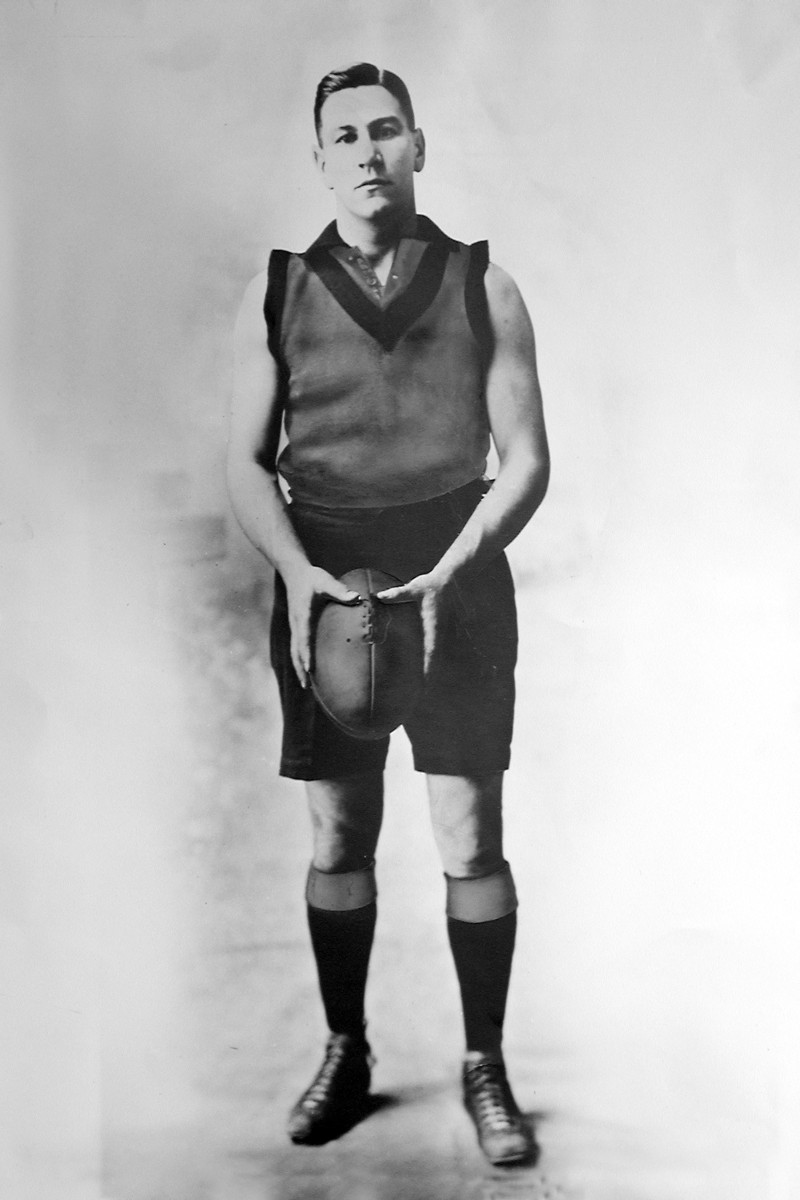Jim Handby
From Snoutslouts
(Basic background text on player - based on wikipedia article) |
|||
| Line 3: | Line 3: | ||
! style="background:black; color:gold" | Career Highlights | ! style="background:black; color:gold" | Career Highlights | ||
|- | |- | ||
| - | | | + | |[[File:Handby.jpg|right|"Jim" Handby]] |
*Glenelg 1925-1932 | *Glenelg 1925-1932 | ||
**123 games | **123 games | ||
Revision as of 12:36, 1 June 2010
| Career Highlights |
|---|
|
"Jim" Handby (1 September 1903 – 2 October 1991) was born Herbert Harry Handby in Adelaide, South Australia. He was invariably referred to simply as 'Jim'.
Handby enjoyed a league football career at two SANFL clubs, achieving his greatest honours while featuring prominently in the development of the young Glenelg club.
Handby commenced his career with South Adelaide in 1922. Although not a classically brilliant player, he displayed great perseverance and all round effectiveness. Handby played 42 games for South Adelaide between 1922 and 1924. He was quickly recognised as one of the best defenders in South Australia, and in 1923 Handby made his debut at State-level football. Altogether he represented South Australia 29 times during his career.
Handby joined Glenelg in 1925, and on debut featured prominently in the club's first ever win (breaking a 56 game losing streak). Handby won Glenelg's club champion award in 1925 and 1929. He won the SANFL's Magarey Medal in 1928 as the 'fairest and most brilliant' player in the competition.
He was Glenelg's captain-coach in 1926 and 1927 but then relinquished this role until 1930, when he started a further three year period as captain-coach. Sadly the best result he achieved as a coach was 6th (in an 8 team competition) in 1931.
After leaving football he became a publican and company director before being elected to Glenelg Council, and he served in the military 1942-1945. In 1949, he was elected to the Australian House of Representatives as the Liberal member for the new seat of Kingston, defeating Labor member for Boothby Thomas Sheehy for the notionally Labor seat. He was defeated in 1951 by Labor's Patrick Galvin and returned to his business career. He died in 1991.

